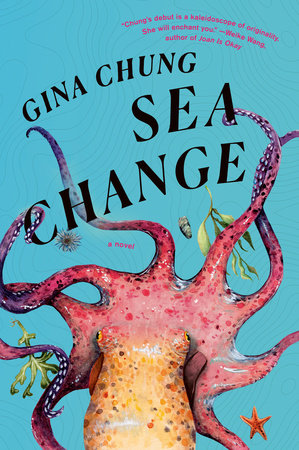
Written by Stephen Hong Sohn
Edited by Corinna Cape
*reviewer’s note: In my aim to cover as much ground and texts as I can, I’m focusing on shorter lightning reviews that get to the gist of my reading experience! As Asian American literature has boomed, my time to read this exponentially growing archive has only diminished. I will do my best, as always!
Ah, I am reviewing Katherine Lin’s You Can’t Stay Here Forever (Harper, 2023), which is essentially The White Lotus meets Helen Wan’s The Partner Track. Let’s see why I gave it this description by checking out the marketing block below: “Desperate to obliterate her past, a young widow flees California for the French Riviera in this compelling debut, a tale of loss, rebirth, modern friendship, and romance that blends Sally Rooney’s wryness and psychological insight with Emma Straub's gorgeous scene-setting and rich relationships. Just days after her young, handsome husband dies in a car accident, Ellie Huang discovers that he had a mistress—one of her own colleagues at a prestigious San Francisco law firm. Acting on impulse—or is it grief? rage? Probably all three—Ellie cashes in Ian’s life insurance policy for an extended stay at the luxurious Hotel du Cap-Eden-Roc in Antibes, France. Accompanying her is her free-spirited best friend, Mable Chou. Ellie hopes that the five-star resort on the French Riviera, with its stunning clientele and floral-scented cocktails, will be a heady escape from the real world. And at first it is. She and Mable meet an intriguing couple, Fauna and Robbie, and as their poolside chats roll into wine-soaked dinners, the four become increasingly intimate. But the sunlit getaway soon turns into a reckoning for Ellie, as long-simmering tensions and uncomfortable truths swirl to the surface.”
If you watched the second season of The White Lotus, you’ll recall the very sticky quadrangle that was one of the major plots. At the same time, Lin’s novel also deals with someone in a law firm. Hence, my equation: The White Lotus + The Partner Track = You Can’t Stay Here Forever. The lazy equation aside: the novel’s incredibly immersive, so much so that I thought about bringing it with me on an airplane flight. I ended up not bringing it because I was already halfway through, and I didn’t want to have to start a new novel and bring two books with me on the plane, so I left it fallow for about a week, then finished it upon my return. The novel’s an interesting meditation on grief and Asian American identity and how grief is the propulsion that encourages Ellie to figure out what it is she actually wants to do. Up to that point, Ellie’s been sort of coasting, as she can kind of line up her life alongside the normative expectations held up for her: continue to move up the corporate ladder, marry well, and you’ve made it. This sort of approach is catastrophically upended by her partner’s death and the discovery that he’s been having an affair. The novel is as much about grieving the illusion of her life as it is about the death of her husband. An engaging and notable debut!
Buy the Book Here



